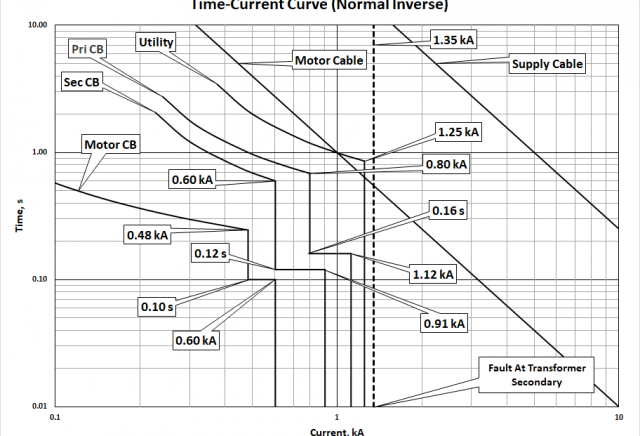IEC 60909 recommends the calculation of maximum and minimum short circuit currents. The article expounds the discussion on the purpose for maximum and minimum short-circuit currents.
Maximum short-circuit currents need to be calculated because they determine the rating required for the equipment on the system. These values would allow for foreseeable system upgrades that could occur independently of repeating the calculations and confirming ratings. While IEC 60909 does not call for it, it is useful to also calculate a present maximum short-current. This is needed to verify present protection grading.
Calculation of minimum short-circuit currents is required to ensure that protection will pick up and trip with the setting applied. The protection equipment will not be damaged because the current is below the minimum breaking current of the protection equipment.
IEC 60909 introduces the concept of a voltage factor "c" to calculate the maximum and minimum short-circuit currents. The maximum short-circuit current, cmaxUn is equal to the highest system voltage as per IEC 600038 Um or the highest voltage that should appear under normal conditions at any location in the network at that voltage level. For the minimum short-circuit current, cminUn is the lowest voltage at that location in the network.
The two voltage factors should be used with the most likely impedance of each component. If accurate data are not available, the most likely value rather than an extreme value should be used. In other words be conservative once only and not with the choice of every parameter.
For the maximum case, the following data should be included.
- cmaxUn.
- impedance corresponding to the maximum short-circuit current
- maximum number of parallel transformers in service.
- ring main, if present should be closed.
- calculation performed at input terminals of a low-voltage switchboard.
For the minimum case, the following data should be included.
- cminUn.
- impedance corresponding to the minimum short-circuit current
- minimum number of parallel transformers in service
- ring main, if present should be open.
- transformer to switchboard impedance included.
- calculation performed at the end of a low-voltage switchboard
- calculation including the influence of the arc voltage for low voltage.
Reference:
Applying IEC 60909, Fault Current Calculations by David Sweeting
